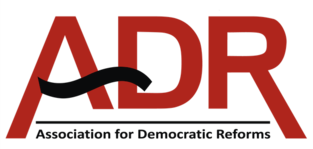New Delhi, Nov. 21: The Supreme Court today sought the response of the Narendra Modi government on a BJP appeal against a Delhi High Court judgment holding the party and the Congress guilty of accepting donations illegally from foreign sources.
A bench of Chief Justice H.L. Dattu and Justices Ibrahim Kalifulla and A.K. Sikri sought the response within six weeks and tagged on the matter with a similar appeal by the Congress. The high court had held the two parties guilty on March 29 this year and directed the Centre — the UPA was in power then — to probe within six months whether other parties had received such donations.
The order came on a PIL by an NGO, the Association for Protection of Democratic Rights (APDR).
The plea alleged that the Congress and the BJP had received crores from Sterlite Industries India Ltd and Sesa Goa, both Indian subsidiaries of the UK-based Vedanta group, from 1976 to 2009.
In its appeal, the Congress said the high court had failed to consider the question that despite the two firms being subsidiaries of a foreign firm, the majority shareholders were Indians. It has also argued that what is prohibited under law is contributions by “citizens of foreign countries”.
The high court had, however, said that industrialist Anil Agarwal, an Indian citizen based in the US, and his family owned more than 50 per cent of Vedanta and any contributions made by them prima facie violated the Foreign Contribution Regulation Act (FCRA), 1976, or the FCRA.
The court had ruled that the law was meant to be a shield to protect India from subversive activities.
The NGO had alleged that acceptance of donations from foreign sources was a blatant violation of the FCRA by the parties. It said such funding also fell foul of the Representation of People Act, 1951, which prohibits parties from taking any form of donations from foreign sources and government entities.
Interpreting the provisions of the FCRA, the high court had said that the law “was enacted by Parliament to insulate the sensitive areas of national life like journalism, judiciary and politics from extraneous influences stemming from beyond our borders”.
The NGO, represented by counsel Prashant Bhushan and Pranava Sachdeva, had argued that though the donors were firms registered in India under the Companies Act, 1956, more than half of their shares were held by the UK-based Vedanta.






